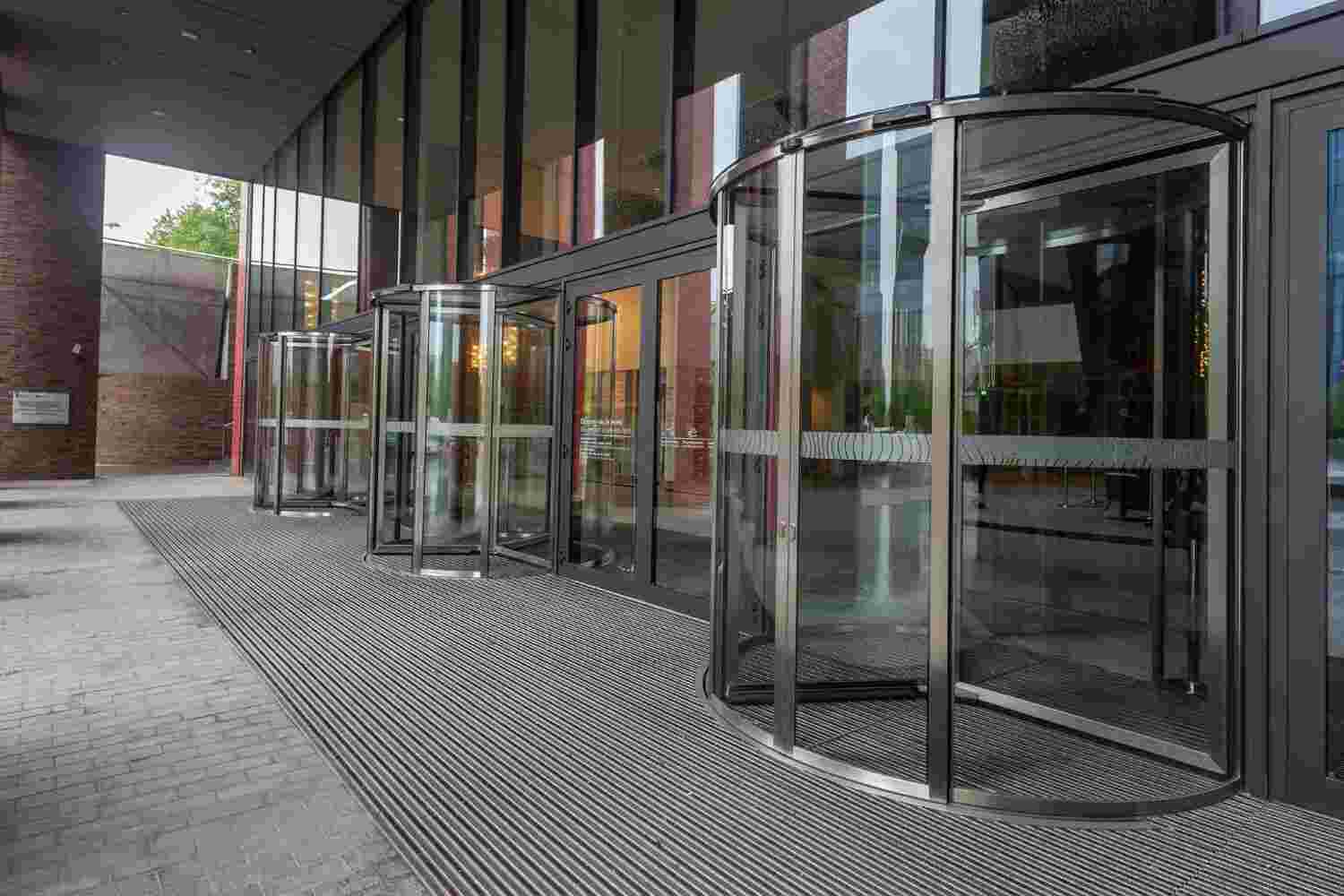Doors are an essential part of any building—they provide security, privacy, and style while serving as a barrier between interior and exterior spaces. However, not all doors are created equal. The doors used in homes are quite different from those installed in commercial properties.
Whether you’re managing a business facility or maintaining a home, understanding these differences is key when it comes to choosing, maintaining, or hiring a commercial door repair service in Providence.
Let’s take a closer look at the major differences between residential and commercial doors, and why those distinctions matter.
1. Purpose and Usage
The primary difference lies in how each type of door is used.
-
Residential Doors are designed for private use in homes, apartments, or condos. They prioritize aesthetics, comfort, and energy efficiency, handling relatively light daily traffic.
-
Commercial Doors, on the other hand, are built for heavy, constant use in environments like offices, retail stores, warehouses, and schools. They must withstand frequent operation, higher wear and tear, and stricter safety standards.
In a busy city like Providence, where storefronts and office buildings see hundreds of visitors daily, commercial doors are expected to deliver long-term durability and reliable performance.
2. Materials and Construction
Residential doors are often crafted for beauty and insulation. Common materials include:
-
Wood – offers a classic, warm appearance
-
Fiberglass – durable and energy-efficient
-
Steel – provides extra security for exterior entrances
Commercial doors, however, emphasize strength and resilience over aesthetics. They are typically made of:
-
Aluminum and glass (common for storefront doors)
-
Hollow metal or steel (for industrial or back entrances)
-
High-impact glass (for visibility and security)
These materials are chosen to meet fire ratings, security codes, and weather resistance requirements—especially in areas like Providence, where seasonal weather conditions can be harsh.
3. Design and Functionality
The design goals of residential and commercial doors differ greatly.
-
Residential doors often feature decorative panels, intricate designs, and varied color finishes that complement a home’s architectural style.
-
Commercial doors focus on practicality, accessibility, and compliance. For example:
-
Automatic or sensor-activated sliding doors for customer convenience
-
Fire-rated doors for safety compliance
-
Reinforced frames and panic bars for emergency exits
-
These functional differences mean that repairing or maintaining a commercial door requires specialized knowledge and tools—something a professional commercial door repair service in Providence is trained to handle.
4. Hardware and Security Features
Commercial doors use industrial-grade hardware that can handle more frequent use and meet higher security demands. This includes:
- Heavy-duty hinges and closers
- Panic exit devices
- Access control systems (keypads, keycards, or biometric locks)
- Reinforced frames and strike plates
Residential doors typically rely on simpler locks and handles, focusing more on user-friendliness than high-level security.
Because of these hardware differences, commercial doors require more advanced maintenance and repair techniques—making professional servicing essential.
5. Building Codes and Safety Requirements
Commercial properties must comply with strict building codes and safety regulations, including:
- ADA (Americans with Disabilities Act) compliance for accessibility
- Fire-resistance ratings
- Emergency egress standards
- Energy efficiency codes
Residential doors are subject to fewer regulations and mainly focus on safety, insulation, and design.
In Providence, where commercial properties range from historic downtown buildings to modern business centers, ensuring your doors meet local codes is crucial—and that’s another reason to rely on certified commercial door repair professionals who understand state and city requirements.
6. Maintenance and Longevity
Because of their heavy use, commercial doors require regular maintenance to remain safe and operational. Common issues include worn hinges, sensor malfunctions, or alignment problems caused by frequent opening and closing.
Residential doors, by contrast, often need less frequent servicing unless damaged or exposed to harsh weather.
Businesses in Providence that invest in routine commercial door repair and maintenance can extend the life of their entry systems, reduce unexpected downtime, and ensure the safety of their employees and customers.
7. Cost and Installation Complexity
Finally, the cost and installation process differ significantly:
-
Residential doors are relatively simple to install, with costs depending on materials and style.
-
Commercial doors are more expensive due to their size, materials, automation, and compliance features. Installation typically requires professional technicians trained in commercial systems.
However, the higher upfront investment pays off in longevity, safety, and performance—especially for busy commercial environments.
Conclusion
While both residential and commercial doors serve the same basic purpose, they are designed for very different environments and needs.
Residential doors focus on comfort and aesthetics, while commercial doors emphasize durability, safety, and functionality. For businesses in Rhode Island’s capital, partnering with an experienced commercial door repair service in Providence ensures that doors remain in top condition—meeting local regulations, enhancing security, and providing smooth operation every day.
Whether you’re maintaining a storefront, office, or industrial facility, understanding these key differences helps you make better decisions about installation, maintenance, and long-term care.




